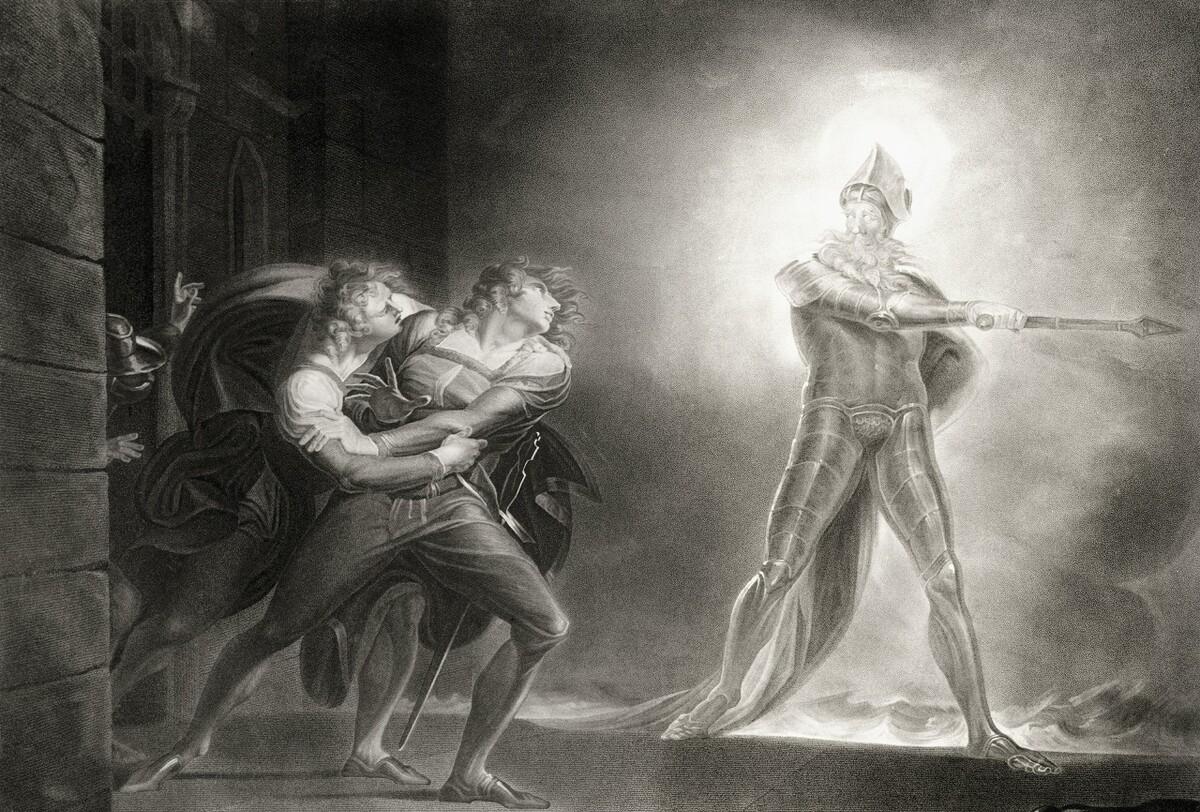In the story of "Hamlet", the most shocking sentence in my heart: survival or destruction, this is a question worth considering. Silently enduring the tyranny and poisonous arrows of fate, or standing up against the endless suffering of the world and sweeping them away through struggle, which of these two acts is more courageous?
Throughout the story, Shakespeare's magnificent narrative style thrills a period of dynastic changes between the ancient European nobility and the Danish royal family. In this story, there are perverse and paradoxical behavior, judgments in the dark, accidental slaughter, tricks of killing people with knives, and finally falling into self-harm. Who expected the prosperity of the past to become the soil of the present dynasty.
In the downright tragedy of Hamlet, it is difficult to say absolutely who is right and who is wrong, but it is a good interpretation of the sentence --- the world suffers." I think that this ancient and modern Chinese and foreign tragedies are all connected. Just as the stories of happiness are always similar, the stories of unhappiness have their own misfortunes.
People say that a thousand people have a thousand Hamlets, and that doesn't lie to me. If Claudius, who killed his brother and sister-in-law, was an out-and-out bastard, if it were not for his forcible seizure of the throne as the beginning, there would be no subsequent series of tragedies, but Claudius really did not marry and have children in this life, and there was true love between him and the queen.
Thus, between these three people, a dead knot was formed: Claudius could not do without the queen, and the queen could not do without her son Hamlet, but Hamlet and Claudius had a vendetta!

At the beginning of reading the story of "Hamlet", I was very puzzled by many of the queen's behaviors, such as her marrying the new king less than two months after the death of her husband, which led to a series of crazy revenge acts of Hamlet later, and it is obvious that we who stand in the perspective of God unconsciously bring our own position into the protagonist Hamlet. Therefore, it is not pleasing to the eyes to see the queen everywhere.
In particular, in the book, Hamlet reveals in the queen's bedchamber that he is not really crazy, but a sharp statement when pretending to be crazy, which can be described as extremely mean, and there is no respect for the queen, on the contrary, it is a very vigorous rebuke. Just when I thought that the queen would be ashamed and angry and accuse Hamlet in front of the new king, the queen did everything possible to cover up Hamlet's personal safety.
At the end of the story, I think that the queen actually realized that it was a glass of poisonous wine, and she did not drink that wine by mistake, but simply that she wanted to exchange her death for Hamlet's life. In the face of the life and death of her own child, the mother's own safety, as well as her love, are insignificant and not worth mentioning. This is the last compassion of a mother for her child, showing the brilliance of motherhood.
No matter how long she and the child have been separated from each other, no matter how far they have gone, in the mother's heart, the child will always be the most important part. She can give up her former husband in order to chase love, she can do whatever it takes for her love, but in the end, in the face of her son's life and death, she will still choose to leave her children with a way to live.
She understood that Hamlet and Claudius would fight each other to the death, and neither of them would leave a way for each other to live, so she preferred to die herself and try in vain to prevent this tragedy. As everyone knows, from the moment Claudius killed his predecessor, the family was already cursed by fate, and everything was not on the original track.
The world has always been full of sympathy for the ill-fated prince, but in the process of revenge, is Hamlet really all his actions just? Are they all worthy of praise? Apparently, it is not, for example, that he accidentally killed Ophelia's father in an agitated mood, and Ophelia accidentally fell into a stream and drowned because his father died in a madness, and his brother was killed when he was used by the king and was sword-to-sword with Hamlet.
The beautiful Ophelia, once Hamlet's beloved, was eventually destroyed by Hamlet. Towards the tragic end of fate. In that brutal fateful duel, the queen drank poison to death, and Hamlet and Ophelia's brother were killed because of the poison on the blunt sword. Even the initiator Claudius was poisoned to death, and at this point, the regiment was destroyed.
Shakespeare is really a good hand at writing tragedies, leaving no room, no turning, and everyone is between betrayal and redemption, between right and wrong and right and wrong, towards destruction and silence. Like the cycle of fate, everyone has to pay the price of their lives for their mistakes.
Returning to the deafening question in the book: Survival or destruction is a question worth considering. Silently enduring the tyranny and poisonous arrows of fate, or standing up against the endless suffering of the world and sweeping them away through struggle, which of these two acts is more courageous?
I understand the reasoning, but it is difficult to do.